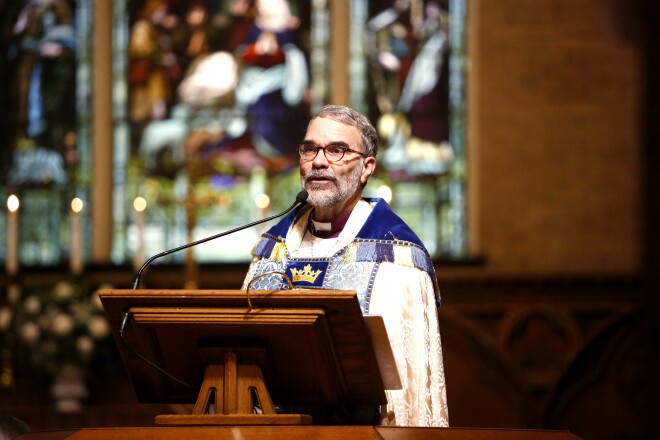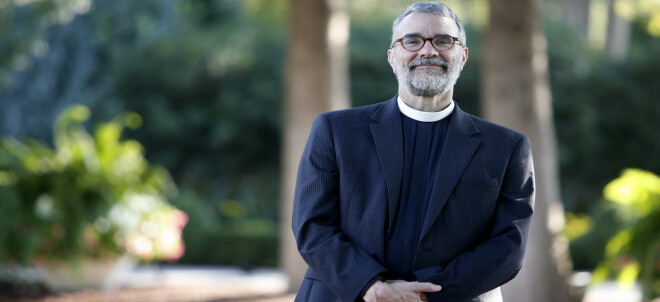There is a theory of administration, which says if all parties are a bit put out you are doing something right! Some years ago the Episcopal Church was criticized as the Republican Party at prayer - more recently as the Democratic. But really the heart of the doctrine of the Church is that it conforms itself, humbly and imperfectly, to the word of God, which cannot fit comfortably to the world as we see it. “You are the salt of the earth, but if salt should lose its saltness...”
In our time this may mean our self-understanding has to have a certain scattershot, “back to basics” feel. The church advocates for those in great need. The church recognizes the state’s prudence interest in the restraint of forces of evil such as terror. The church is from every family, language, and nation, and represents the true globalism. The church must pray earnestly for the nation’s leader. The church professes what it understands to be truth in a postmodern, post-truth world. The church is blessedly messy, an incongruity with political foes and economic extremes cheek-to-jowl. The church is local, inter-personal, of human scale, often weak, in a technologized world. The church witnesses increasingly at the margins as it conducts a long missionary dialogue with post-modernity. The church is patient and learns from its brothers and sisters who suffer for their faith. The church preserves its hope for apostolic unity in a time of intense change and market share. The church reminds all that we too are creatures formed by God, and stewards thereof by His command.
Another way to put it is this. The church is the toehold of God's Word in a world that supposes it can get along on its own (though of course that Word actually made and rules that world). Those who hear its call and come are saved. As a gracious bonus, its presence has many salutary effects on the world - but it does not exist for these, nor does it subserve any other cause, however laudable. The Church is first of all a creatura Verbi (heard and seen in preaching and sacrament) and its servant too.
For years theologians have talked about of becoming a remnant church or an exile or having a Benedictine moment in our secular age. We don’t need to find it; it will find us. And yet, as is always true in mission, the church and its message will also offer to a new generation what they are truly looking for, the pearl of greatest price.
Peace
+GRS





